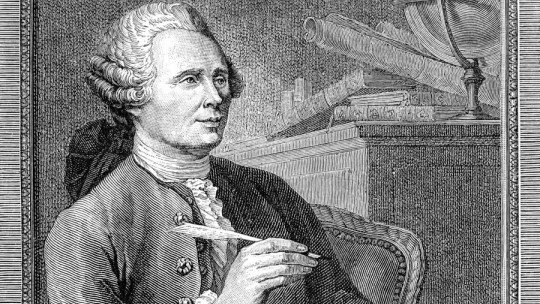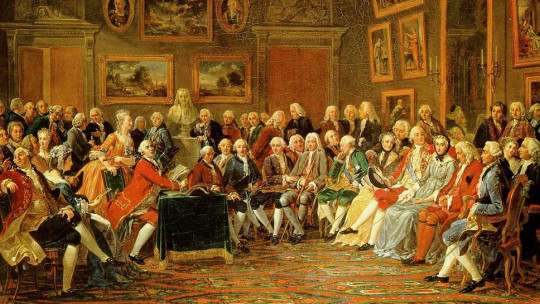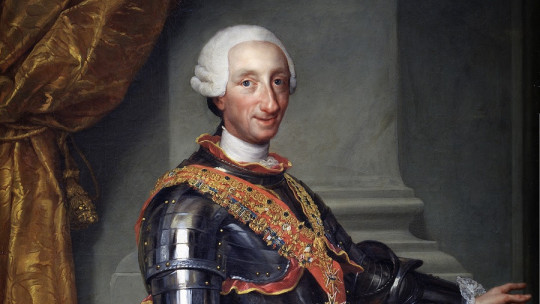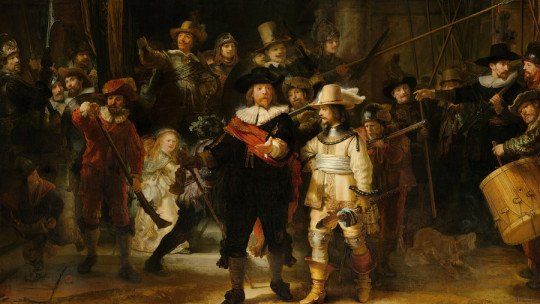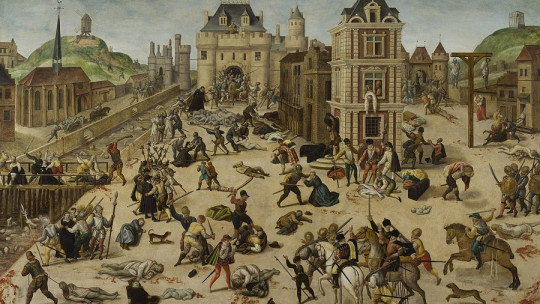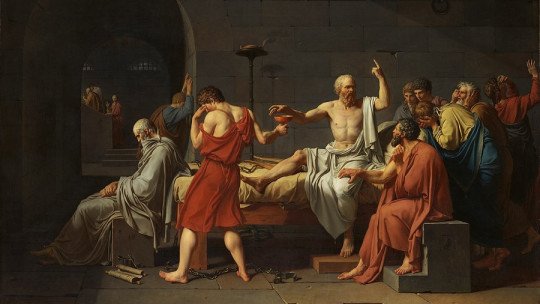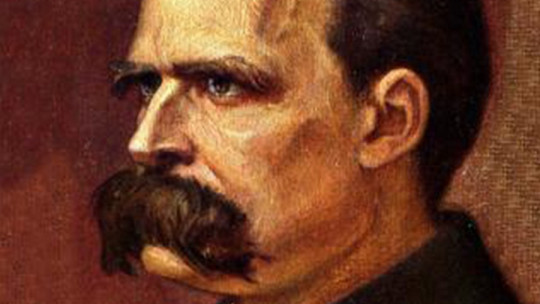It was the year 1772, and in France the last volume of the French Encyclopedia appeared either Encyclopédie ou Dictionnaire raisonné des sciences, des arts et des métiers. It was the most ambitious project of the Enlightenment in the French country, and it had famous thinkers and scientists such as Denis Diderot or Jean le Rond d’Alembert behind it.
But, despite being, without a doubt, the most important intellectual project of the Age of Enlightenment, the Encyclopedia did not appear out of nowhere, nor was it accepted by everyone in the same way. Because, while the enlightened people cheered it as the great compilation of human knowledge, others denounced it as a true insult to faith. In fact, after the suspension of rights by the French government, its authors had to continue their work underground.
Who were the men behind such an intellectual achievement? What was your career? What direction did their lives take after the publication of the Encyclopedia? In today’s article we are going to find out.
Encyclopedists and Enlightenment: when reason began to question everything
What was this extraordinary time that gave birth to a project of such magnitude? Let us remember that the original edition of the Encyclopedia consists of no less than 28 volumes, which include more than 70,000 articles, written by the great intellectuals of the moment, and more than 3,000 illustrations. A colossal monument to human reason.
Without a doubt, the Encyclopedia is the daughter of the Enlightenment, the current of the 18th century that flooded Europe. At the bases of this intellectual movement was the will to “dispel” the ignorance that had kept human beings chained for centuries , through the exclusive use of reasoning. That is to say, within the Enlightenment movement there was no room for the “obscurantism” of previous times; The enlightened ones went against (some, in an absolutely radical way) religion, customs and everything they considered harmful to the “healthy” education of man.
And we say well, “of the man.” Because, even though the Age of Enlightenment has a roster of enlightened women, the status of women changed practically nothing with the advent of the “empire of reason.” Nor did its consequences, including the French Revolution, grant the female population other roles than those that had been traditionally assigned to them. In 1791, Olympe de Gouges (1748-1793) denounced in his Declaration of the Rights of Women and Citizens that the change had only taken place for men.
Be that as it may, It is undeniable that the Enlightenment forever changed the foundations of Europe Not only did it spur scientific progress (which, on the other hand, and especially in England, had already been taking place since the previous century, with figures as relevant as Isaac Newton), but it also promoted the idea of the division of powers and law. of the people to participate in the government, ideas that were widely collected by authors such as Montesquieu or Voltaire.
Origins and evolution of a project
At the beginning of the 18th century, England stood out on the European continent, not only because of its incipient Industrial Revolution, but also because of its progress in the field of science and politics. The “Glorious” Revolution of the 17th century had delimited the power of the king; The English monarchy would never again be confined within the guidelines of absolutism, and thus marked the path for the rest of Europe.
In this context of incipient liberalism, John Locke (1632-1704) published in 1690 Two Government Treatiesin which he laid the foundations of popular sovereignty by stating that The government was a pact between the leaders and the people A little later, in 1728, the famous Cyclopaedia or the Universal Dictionary of the Sciences and the Arts, by Ephraim Chambers. It was an extensive compilation of human knowledge that was the direct inspiration for the subsequent Encyclopedia of the French Illustrated.
In fact, at first, the Encyclopedia project was a simple translation. In 1747, the editor André Le Bréton (1708-1779) commissioned Denis Diderot and Jean le Rond d’Alembert to translate the Cyclopædia into French, since the public was deeply interested in this type of publications. However, as time went by, the two authors (who had become the directors of the project) decided to expand their knowledge of the English edition through new writings.
An uncomfortable work
It is almost impossible to review the complete list of all those who participated in the Encyclopedia French. Some articles were published anonymously, as if the authors had wished to remain hidden. And, in reality, it was no wonder. The strictly secular character of the work, which classified religion as a mere branch of philosophy (in contrast to what Scholasticism had promoted since the Middle Ages) ran into the fury of the most conservative and, of course, the Church.
These conflicts precipitated d’Alembert’s resignation from the project in 1758. A year later, the Encyclopedia became part of the list of books prohibited by the Church and lost its government license, forcing its authors to continue. publishing it clandestinely. At that time, seven volumes had already seen the light of day.
The project was able to stay alive, in part, because of the support it received from people very close to the king; among them, Jeanne-Antoinette Poisson (1721-1764) the royal favorite, better known as Madame de Pompadour. This woman was one of the most distinguished enlighteners of the court and promoted numerous artistic and intellectual projects, including the work of Diderot and d’Alembert. On the other hand, the famous politician Guillaume-Chrétien de Lamoignon de Malesherbes also sided with the encyclopedists. The French government pretended to know nothing about the matter and let the project continue without official permission.
Who were the encyclopedists of the Enlightenment?
After laying the foundations of the social context and the history of the project, we can move on to talk about the protagonists of this great intellectual event. We have already mentioned that at the head of the Encyclopedia were Diderot and d’Alembert (the latter, until his resignation in 1758), and that each of the volumes is made up of numerous articles from all disciplines, written by great scholars in subjects of science, art, philosophy, mechanics…
The list of the authors of the Encyclopedia whose authorship we know is very long. Among them are Louis de Jaucourt (1704-1779), doctor and philosopher and one of those who wrote the most articles; the doctor Paul Jospeh Barthez (1734-1806), who wrote articles on medicine, or the linguist Charles de Brosses (1709-1777), who was in charge of some texts on etymology, music and literature.
However, in this section we will briefly stop at the 5 most remembered encyclopedists in history: Denis Diderot, Jean Le Rond d’Alembert, Montesquieu, Jean-Jacques Rousseau and Voltaire
Denis Diderot (1713-1784)
In addition to directing the work of the Encyclopedia with D’Alembert, Diderot wrote articles that dealt with various topics, including politics and economics. A restless intellectual, he was the son of a cutler from Langres who wanted his son to dedicate himself to the Church. However, that was not the destiny that Diderot dreamed of. In 1742, at the age of twenty-nine, he asked his father for permission to marry Anne-Antoinette Champion.
The young woman’s lack of dowry caused the final conflict, and Monsieur Diderot Sr. locked his son in a monastery to meditate on the matter. However, the young man soon escaped from his prison and eventually married Antoinette. The marriage was not happy and Diderot had other relationships, including the one who was undoubtedly his great love, Sophie Vollard, with whom he maintained an intense correspondence that is still preserved.
In the intellectual field, Diderot is one of the greatest French enlighteners. In addition to his critical and essayistic work, we also find novels such as The nun , published in 1780 and which is about a girl who is forced to profess as a nun against her will. Without a doubt, the philosopher captured part of his personal experiences in the work.
Diderot was a radical atheist who, like his companions Holbach and Helvetius, was part of the materialist movement. In his philosophy, then, there is no place for the concept of God. His work Letter on the blind for the use of those who see, published in 1749, in which he stated the existence of a single matter in continuous change, earned him a brief arrest in Vincennes, on charges of heresy. Which shows, once again, that not everyone viewed some of the precepts of the Enlightenment favorably.
Jean Le Rond d’Alembert (1717-1783)
Diderot’s companion on his encyclopedic journey, d’Alembert, had been born as a bastard son, and was later abandoned at the door of the church. The name of the temple, precisely, was what gave it its name: Saint-Jean-Le-Rond. Despite his abandonment, his biological father took care of the expenses of his education, and d’Alembert was able to command considerable erudition.
Very interested in fields such as philosophy and mathematics, he wrote several works on exact sciences, which earned him fame throughout Europe Before his resignation from the encyclopedic project in 1758, disagreements with his colleague Diderot were already quite frequent, due to their different positions on some issues. However, d’Alembert’s work permeates the entire work: he authored many articles on mathematics and astronomy, and also made the famous Preliminary speech of the first volume.
Charles-Louis de Secondat, Baron de Montesquieu (1689-1755)
Of noble origin and known to history simply for his lordship, Montesquieu is one of the oldest encyclopedists along with Voltaire. He is especially known for his theory of the separation of powers, the basis of what would later become national sovereignty and which would be of capital importance during the French Revolution.
In Law spiritpublished in 1748, Montesquieu expresses his absolute fascination with the English political regime which, let us remember, had inaugurated a parliamentary monarchy during the previous century The work was harshly criticized by the most conservative sectors, and introduced into the Works index banned from the Church in 1750.
But probably the work for which he is most famous is Persian letters (1722), which is based on the fictitious epistles between a Persian who is visiting Paris and his friend Rica, who has remained in his place of origin. Following a common method in the 18th century, which the Spaniard José Cadalso also used in his Moroccan Letters, Montesquieu put his own impressions and criticisms of French society of the time into the Persian’s mouth. Of course, this complaint earned him, once again, inclusion on the famous list of banned books.
Jean-Jacques Rousseau (1712-1778)
Perhaps one of the main differences between Rousseau and many of his encyclopedist colleagues was that he never considered himself an atheist, but rather a deist. He has gone down in history for his unconditional faith in the natural goodness of human beings, which is later corrupted by civilization. In this sense, and for its exaltation of nature as the natural state of humanity, Rousseau has been considered one of the root thinkers of pre-romanticism
Born in Geneva, Switzerland, to a Calvinist father persecuted by justice, Rousseau began a period of wandering as a teenager that would have ended badly had it not been for the protection of Madame de Warens, whom he considered the mother he had lost. (he died when the philosopher was very young). This mother-child relationship was not an impediment for Madame de Warens and Rousseau to become lovers years later.
Rousseau’s “gentle” philosophy does not fit his busy life. After abandoning Madame, he becomes romantically involved with Marie-Thèrese Le Vasseur, an illiterate young woman whom he never married, but with whom he had five children, whom Rousseau gave to the hospice. In the meantime, he published his famous work The social contract (1762), one of the reasons why his name was so appreciated during the Revolution, and Emilio, in which he addresses the topic of education.
François-Marie Arouet, Voltaire (1694-1778)
Voltaire was nothing more than a pseudonym, although what motivated him is unknown In any case, François-Marie Arouet was one of the great French enlighteners and one of the most important authors of the Encyclopedia.
Like Rousseau, he was a supporter of a “natural religion,” deism, which promoted a faith based on a creator God who, after his work, distances himself from the world and does not participate in it. Therefore, deists like Voltaire and Rousseau were openly against ecclesiastical dogmas and were in favor of freedom of expression.
In his English Letters (1734), published after his stay in England, Voltaire, inspired by the political regime of the neighboring country, expresses his adherence to religious tolerance and freedom of thought, which would later have a capital importance in the origin of liberal regimes.

